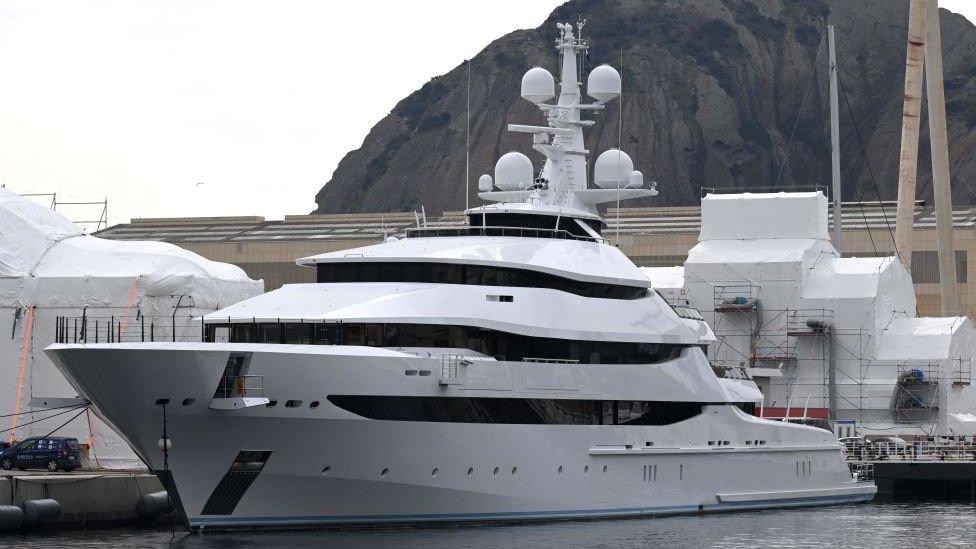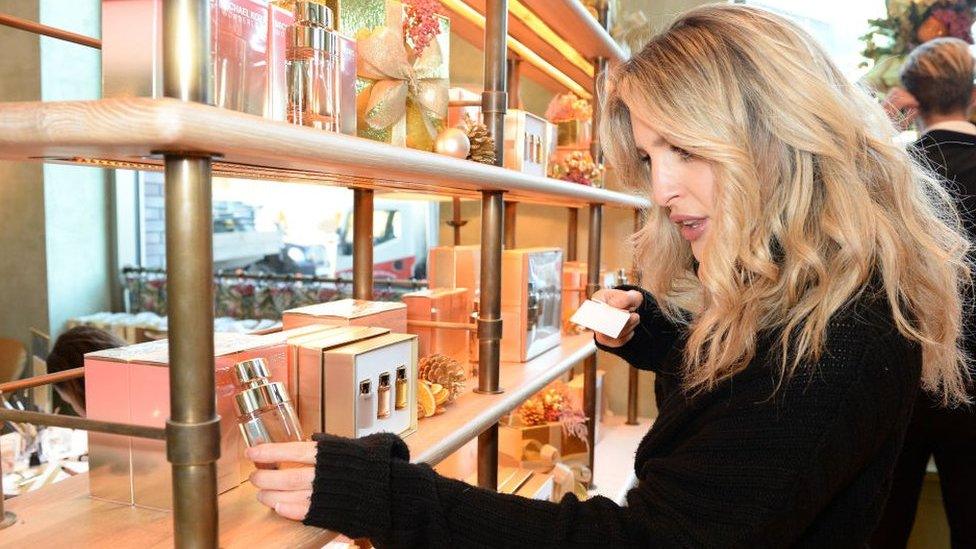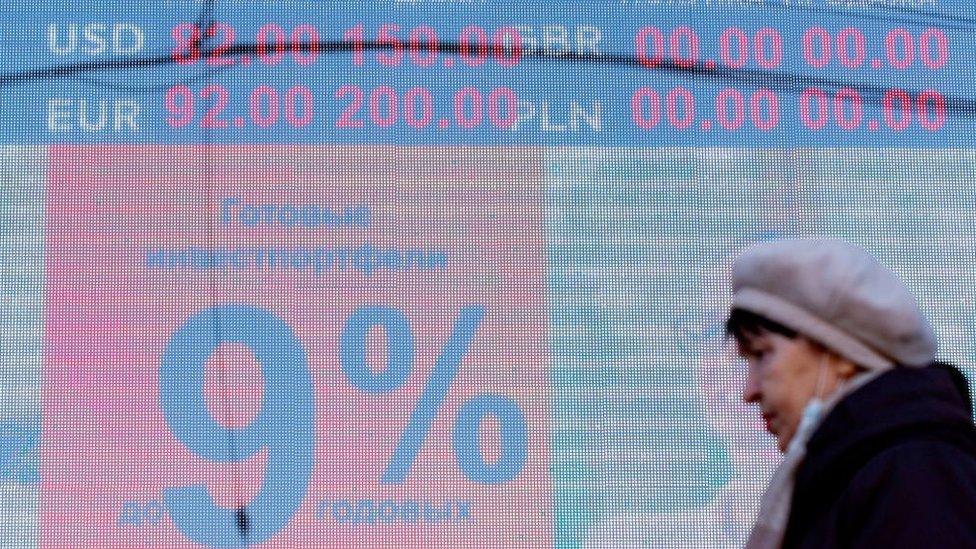Russian oligarch's super yacht seized
- Published

Rosneft boss Igor Sechin's yacht Amore Vero - meaning "true love" - has been seized
French authorities have seized a super yacht owned by an oligarch as part of the sanctions against Russia.
A yacht owned by Igor Sechin, boss of Russian state energy company Rosneft, was grabbed by French customs officers near Marseille.
However, German authorities denied a report, external that they had seized a $600m vessel owned by Russian metal tycoon Alisher Usmanov in Hamburg.
On Thursday, Mr Usmanov was one of two more Russians sanctioned by the UK.
The BBC understands that some oligarchs sanctioned by the European Union are "shocked" to find their debit cards no longer function, and they are now relying on using cash from safes.
The French acted quickly on Wednesday when customs officers noticed that Mr Sechin's 88-metre "Amore Vero" - which translates as "true love" - was "taking steps to sail off urgently".
It arrived in in the Mediterranean port of La Ciotat in January and had been due to stay there while being repaired until 1 April.
It has also been reported that yachts belonging to five other Russian billionaires were heading to the Maldives, regarded as a safe home because it does not have an extradition treaty with the US.
UK slow to act?
The move by France came as the Prime Minister's official spokesman rejected claims that the UK has been slower at introducing sanctions than the EU or that legal hold-ups are preventing sanctions on Russian oligarchs.
He reiterated the UK's position that it was better to prioritise the measures that had the biggest economic impact, rather than targeting individuals just because they were well known.
Some oligarchs have been sanctioned by the government, which means their UK bank accounts are frozen and access to funds denied.
But others are taking advantage of any delay in adding them to its list.
A lawyer told the BBC that wealthy Russians were looking to move their money out of the UK before being hit by sanctions.
"The government has softened the blow by giving [wealthy Russians] time to move their money out," lawyer Nigel Kushner of W Legal told the BBC.
Speaking to the Today programme, he said: "Clients have been asking: 'Can I move my money out before I'm on the list?' I will say yes, that's perfectly legitimate."
The government's list of Russians sanctioned includes 195 individuals, but most predate the invasion of Ukraine.
Since the start of the war just 15 Russians have been added to the sanctions list, including President Vladimir Putin.
Security Minister Damian Hinds told the BBC that the wealth of Russian oligarchs with British investments would not prevent the UK Government from "going after" them.
"There will be more individuals (who) can be sanctioned," he told BBC Breakfast. "We will be going after people as needed."
Foreign Secretary Liz Truss said legal threats would not prevent the UK government sanctioning Russian oligarchs.
In an interview in Lithuania, she said: "We have to make sure we have the right evidence to put in place those sanctions.
"We will continue to work through our list, we will continue to sanction oligarchs and there is nowhere for any of Putin's cronies to hide."
Meanwhile, the London Stock Exchange (LSE) has suspended the shares of 28 Russian-linked companies because of sanctions introduced following the invasion of Ukraine.
They include green energy and metals company En+ Group run by US-sanctioned oligarch Oleg Deripaska, which is chaired by Conservative peer and former energy minister Greg Barker.
The decision to suspend the listings "has been based on sanctions and the ability to run an orderly market," said LSE chief executive David Schwimmer.
"If we see any other securities affected by sanctions then similar actions will take place."
Last week, a subsidiary of Russia's second largest bank, VTB, was suspended on the LSE as a result of sanctions.
However, a number of Russian companies, including Roman Abramovich-backed Evraz, continue to trade on the stock market despite criticism from politicians.
New economic sanctions have also been announced to stop Russian aviation and space companies getting access to the UK insurance market.
The move will limit the benefits Russian businesses can receive from their access to the global insurance and reinsurance market through Lloyd's, the world's biggest insurance market.

Russia attacks Ukraine: More coverage
THE BASICS: Why is Putin invading Ukraine?
INNER CIRCLE: Who's in Putin's entourage, running the war?
IN DEPTH: Full coverage of the conflict

Related topics
- Published3 March 2022

- Published11 March 2022

- Published2 March 2022
